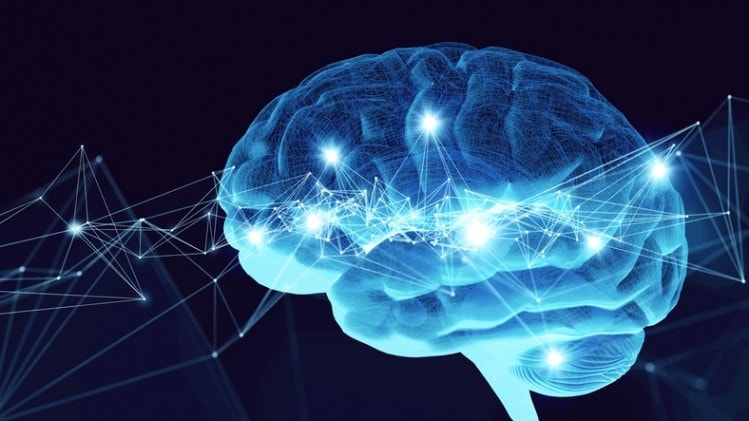Can Hypertension Affect Memory And Cognitive Function?

Hypertension, also known as high blood pressure, is a prevalent chronic condition that affects a significant portion of the global population. It is well-established that hypertension can lead to various cardiovascular complications, including heart disease and stroke.
However, recent research suggests that hypertension may also have detrimental effects on cognitive function and memory. This article aims to explore the potential link between hypertension and cognitive impairment, specifically focusing on memory deficits. By examining the existing literature and discussing relevant studies, this article seeks to provide a comprehensive overview of the impact of hypertension on memory and cognitive function.
Additionally, lifestyle modifications and medication interventions for managing hypertension will be discussed. Ultimately, the goal of this article is to contribute to a better understanding of the relationship between hypertension and cognitive decline and highlight potential strategies for preventing or managing these adverse effects.
Key Takeaways
- Lifestyle modifications such as a balanced diet, regular exercise, and limiting alcohol and tobacco can help prevent and manage hypertension, which may have a positive impact on memory and cognitive function.
- It is important to regularly monitor blood pressure and adhere to prescribed antihypertensive medications for effective hypertension management and potential improvement in cognitive function.
- Future research should focus on understanding the mechanisms by which hypertension affects memory and cognitive function, as well as the role of genetic factors in cognitive impairment associated with hypertension.
- Technology integration, such as wearable devices and telemonitoring, can be utilized to enhance hypertension management and potentially improve memory and cognitive function.
Understanding Hypertension
Hypertension, a medical condition characterized by persistent high blood pressure levels, is a subject of inquiry for researchers aiming to comprehend its underlying mechanisms.
Hypertension prevention and identification of risk factors are of utmost importance due to its association with various health complications.
While the impact of hypertension on cardiovascular health is well-established, recent evidence suggests that it may also affect memory and cognitive function.
Studies have shown that individuals with hypertension are more likely to experience cognitive decline, including deficits in memory, attention, and executive functions.
The exact mechanisms linking hypertension to cognitive impairment are not fully understood, but it is believed that chronic high blood pressure may lead to structural changes in the brain, such as reduced blood flow and damage to blood vessels.
Further research is needed to elucidate the precise relationship between hypertension and cognitive function and to develop targeted interventions for prevention and treatment.
The Link Between Hypertension and Cognitive Function
The relationship between high blood pressure and the ability to think, learn, and remember information has been the subject of extensive research and scientific inquiry. Studies have found a clear link between hypertension and cognitive impairment, including dementia.
Hypertension can lead to damage in the small blood vessels of the brain, known as cerebral small vessel disease, which can contribute to cognitive decline. Additionally, hypertension has been associated with reduced executive function, which involves abilities such as decision-making, problem-solving, and planning.
The mechanisms behind the impact of hypertension on cognitive function are not yet fully understood, but it is believed that chronic high blood pressure may lead to decreased blood flow to the brain and increased inflammation, both of which can negatively affect brain health.
Further research is needed to fully elucidate the complex relationship between hypertension and cognitive function.
Impact of Hypertension on Memory
This paragraph introduces a discussion on the impact of hypertension on memory and cognitive abilities.
Hypertension has been linked to memory impairment, with studies showing that individuals with high blood pressure may experience difficulties in remembering and retaining information.
Furthermore, hypertension can also have an effect on cognitive abilities, such as attention, reasoning, and problem-solving skills.
Understanding the relationship between hypertension and memory impairment can help in developing interventions and strategies to mitigate the cognitive decline associated with high blood pressure.
Memory Impairment and Hypertension
Memory impairment is a potential consequence of hypertension, impacting cognitive abilities and creating a foggy mental landscape. Research has shown that individuals with hypertension are at a higher risk of experiencing memory loss and cognitive decline. This can manifest in various ways, such as difficulty remembering recent events or struggling with attention and concentration.
The exact mechanisms underlying this relationship are not fully understood, but hypertension is thought to contribute to the development of small vessel disease in the brain, leading to reduced blood flow and oxygen supply to crucial areas involved in memory and cognitive function. Furthermore, hypertension can also cause structural changes in the brain, such as the formation of white matter lesions, which have been associated with cognitive impairment.
Overall, the impact of hypertension on memory and cognitive function highlights the importance of managing blood pressure to preserve brain health.
Effect on Cognitive Abilities
Impaired cognitive abilities resulting from hypertension can have a significant impact on an individual’s overall mental acuity and intellectual functioning.
Hypertension, or high blood pressure, has been found to affect attention and learning abilities in individuals. Attention is the ability to focus and sustain concentration on a particular task or stimulus, and hypertension can disrupt this process. Research has shown that individuals with hypertension may experience difficulties in maintaining attention and may have a reduced ability to filter out distractions.
Additionally, hypertension can also have a negative impact on learning abilities. It can impair the brain’s ability to acquire new information and consolidate memories. This can result in difficulties in acquiring new knowledge and skills, as well as in retrieving previously learned information.
Therefore, it is important to manage hypertension effectively to minimize its impact on cognitive abilities.
Hypertension and Brain Health
Hypertension has been found to have a significant impact on cognitive function and brain health. It is well-established that hypertension is a major risk factor for various neurological disorders, including cognitive decline and dementia.
Studies have shown that individuals with hypertension are more likely to experience cognitive impairment and have a higher risk of developing Alzheimer’s disease. Furthermore, hypertension can lead to structural and functional changes in the brain, such as cerebral small vessel disease and reduced cerebral blood flow, which can further contribute to cognitive decline.
Therefore, it is crucial to focus on hypertension prevention and treatment to mitigate its detrimental effects on brain health and cognitive function. Early detection and management of hypertension through lifestyle modifications and medication can help reduce the risk of cognitive decline and improve overall brain health.
Lifestyle Changes to Manage Hypertension
One key approach to effectively manage high blood pressure involves making certain lifestyle modifications. Dietary modifications play a crucial role in managing hypertension. Individuals should adopt a diet that is rich in fruits, vegetables, whole grains, and low-fat dairy products while avoiding excessive sodium and saturated fats. This can help reduce blood pressure levels and promote overall cardiovascular health.
Additionally, stress reduction techniques are important in managing hypertension. Engaging in regular physical exercise, practicing relaxation techniques such as deep breathing or meditation, and maintaining a healthy sleep pattern can help lower stress levels and contribute to better blood pressure control.
By implementing these lifestyle changes, individuals can significantly improve their blood pressure management and potentially reduce the risk of cognitive decline associated with hypertension.
Medications and Hypertension
Medications can play a vital role in effectively managing high blood pressure. There are several medication options available to individuals with hypertension. These include diuretics, beta-blockers, ACE inhibitors, angiotensin receptor blockers, and calcium channel blockers.
Each medication works differently to lower blood pressure and reduce the risk of complications associated with hypertension. However, it is important to note that these medications may also have side effects. Common side effects include dizziness, fatigue, headache, and nausea. In some cases, individuals may experience more severe side effects such as allergic reactions or kidney problems.
It is crucial for patients to work closely with their healthcare provider to find the most suitable medication and dosage, taking into consideration their specific needs and any potential side effects. Regular monitoring and adjustment of medications may be necessary to ensure optimal management of hypertension.
Prevention and Management of Hypertension
In order to effectively prevent and manage hypertension, several strategies can be employed.
Lifestyle modifications play a crucial role in this regard. Individuals should adopt a balanced diet, low in sodium and high in fruits, vegetables, and whole grains. Regular physical exercise, such as aerobic activity, can also help maintain blood pressure within the normal range. Additionally, limiting alcohol consumption and avoiding tobacco use are essential in preventing hypertension.
Medication adherence is another key aspect of hypertension management. Patients should regularly take prescribed antihypertensive medications and consult their healthcare provider for any necessary adjustments.
Regular blood pressure monitoring is crucial to ensure effective management.
It is important to note that hypertension prevention and management require a comprehensive approach, involving both lifestyle modifications and medical interventions.
Conclusion and Future Directions
To conclude, the future of hypertension management lies in continued research and advancements in both lifestyle modifications and medical interventions.
Future research should focus on further understanding the mechanisms through which hypertension affects memory and cognitive function. This will enable the development of targeted interventions to prevent or mitigate cognitive decline in hypertensive individuals.
Additionally, exploring the role of genetic factors in hypertension-related cognitive impairment could provide valuable insights for personalized treatment options.
Novel treatment options, such as non-pharmacological interventions or combination therapies, should also be investigated to improve patient outcomes.
Furthermore, the integration of technology, such as wearable devices and telemonitoring, may enhance the management of hypertension and its cognitive consequences.
Overall, the future holds promising prospects for better understanding and managing hypertension and its impact on cognitive function through continued research and innovative treatment approaches.
- Breakthrough discoveries in hypertension-related cognitive decline
- Personalized treatment strategies tailored to individual needs
- Utilization of advanced technology for improved hypertension management
Frequently Asked Questions
What are the symptoms of hypertension?
Signs of hypertension include high blood pressure, headache, dizziness, and blurred vision. Effects can range from heart disease and stroke to kidney damage and cognitive impairment. Hypertension can also lead to memory problems and decreased cognitive function.
Is hypertension a reversible condition?
The reversibility of hypertension varies depending on the individual and the severity of the condition. Long-term effects of hypertension may include damage to blood vessels, organs, and an increased risk of cardiovascular diseases.
Can hypertension cause other health problems besides cognitive function impairment?
Hypertension, if left uncontrolled, can lead to various complications and organ damage. These complications can include heart disease, stroke, kidney damage, eye problems, and an increased risk of developing cardiovascular and metabolic disorders.
Are there any natural remedies or alternative treatments for managing hypertension?
Natural remedies and lifestyle changes can be effective in managing hypertension. These include adopting a healthy diet, regular exercise, weight loss, reducing sodium intake, limiting alcohol consumption, quitting smoking, and managing stress levels.
How often should blood pressure be monitored for individuals with hypertension?
The frequency of monitoring blood pressure for individuals with hypertension depends on the severity of their condition. Regular monitoring is essential to assess the effectiveness of treatment and its impact on daily life.









